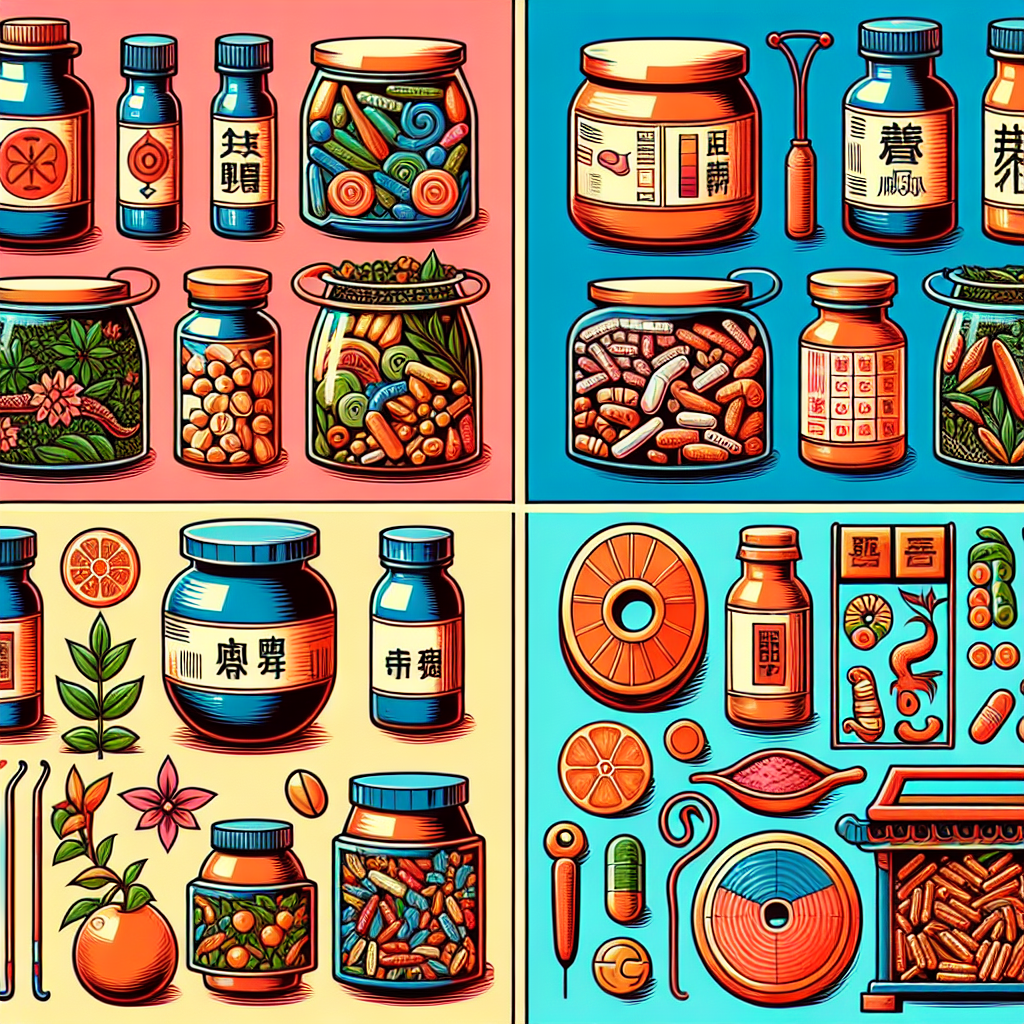Vitamins in Ayurvedic and Traditional Chinese Medicine

Discover the power of vitamins in Ayurvedic and Traditional Chinese Medicine. Unleash your body’s potential for healing and wellness. Visit My Vibrant Vitality today.
Exploring the Role of Vitamins in Ayurvedic Medicine
Vitamins play a crucial role in maintaining our overall health and wellbeing. They are essential for various bodily functions, including growth, digestion, and nerve function. While modern medicine has made significant strides in understanding the importance of vitamins, traditional systems of medicine, such as Ayurveda and Traditional Chinese Medicine (TCM), have long recognized their value.
Ayurveda, a 5000-year-old system of natural healing that has its origins in the Vedic culture of India, places a strong emphasis on the prevention of disease and the promotion of health. It does this through a holistic approach that includes diet, lifestyle, and herbal remedies. Vitamins, in Ayurveda, are not seen as isolated compounds but rather as integral components of the foods we eat.
Ayurvedic practitioners believe that the body is capable of producing the necessary vitamins when provided with a balanced diet. This diet should be rich in fresh fruits, vegetables, whole grains, and lean proteins, which naturally contain a wide range of vitamins. For instance, Ayurveda recommends consuming citrus fruits like oranges and lemons, which are high in vitamin C, to boost immunity and promote skin health. Similarly, leafy green vegetables, rich in vitamin K, are suggested for their role in blood clotting and bone health.
However, Ayurveda also acknowledges that due to various factors such as age, health conditions, and lifestyle choices, the body may not always be able to produce or absorb the necessary vitamins. In such cases, Ayurvedic practitioners may recommend herbal supplements or remedies that are rich in specific vitamins. For example, Amla or Indian Gooseberry, a common Ayurvedic herb, is known for its high vitamin C content and is often used to enhance immunity and promote overall health.
The Ayurvedic perspective on vitamins extends beyond their physical benefits. Ayurveda also considers the impact of vitamins on our mental and emotional health. For instance, B vitamins, which are essential for brain function and mental health, are believed to help balance the mind and emotions. Ayurvedic practitioners often recommend foods rich in B vitamins, such as whole grains and legumes, to help manage stress and anxiety.
In conclusion, while Ayurveda does not explicitly talk about vitamins in the way modern medicine does, it implicitly recognizes their importance through its emphasis on a balanced diet and the use of vitamin-rich herbs. The Ayurvedic approach to vitamins is holistic, viewing them not just as individual compounds with specific health benefits, but as integral parts of our diet and lifestyle that contribute to our overall wellbeing. This perspective, which aligns with the growing recognition of the importance of diet and lifestyle in health, offers valuable insights for anyone seeking to improve their health and wellbeing.
Understanding the Importance of Vitamins in Traditional Chinese Medicine

Vitamins are essential nutrients that our bodies need in small amounts to function properly. They play a crucial role in maintaining our overall health and wellbeing. While modern medicine has made significant strides in understanding the importance of vitamins, traditional systems of medicine like Ayurveda and Traditional Chinese Medicine (TCM) have long recognized their significance.
Traditional Chinese Medicine, a holistic healing system that has been practiced for over 2,000 years, places a strong emphasis on the importance of vitamins. TCM practitioners believe that a balanced diet is the cornerstone of good health and that vitamins are an integral part of this balance. They view vitamins as vital life forces that help to maintain the body’s equilibrium and promote overall wellness.
In TCM, vitamins are not seen as isolated compounds but rather as part of a complex network of nutrients that work together to support the body’s functions. This holistic perspective is reflected in the way TCM practitioners prescribe dietary advice. Instead of recommending specific vitamins or supplements, they often suggest foods that are rich in certain vitamins and other nutrients. For example, they might recommend eating more leafy green vegetables for their high vitamin A content, or more citrus fruits for their vitamin C.
This approach is rooted in the TCM concept of “food as medicine.” According to this philosophy, the foods we eat can either support our health or contribute to disease, depending on their nutritional content and how they interact with our bodies. Vitamins are seen as key players in this process, helping to nourish our bodies, support our immune systems, and protect against disease.
In addition to their role in nutrition, vitamins also play a part in TCM’s understanding of disease. TCM practitioners believe that vitamin deficiencies can disrupt the body’s balance and lead to illness. For example, a deficiency in vitamin B12, which is essential for nerve function and the production of red blood cells, can cause symptoms like fatigue, weakness, and anemia. TCM practitioners would see these symptoms as signs of an underlying imbalance that needs to be addressed, often through dietary changes to increase the intake of vitamin B12-rich foods.
Similarly, in Ayurveda, the ancient Indian system of medicine, vitamins are seen as essential for maintaining balance and health. Ayurvedic practitioners believe that a balanced diet, rich in vitamins and other nutrients, is key to preventing disease and promoting longevity. They often recommend foods that are high in specific vitamins to support the body’s functions and maintain its equilibrium.
In both Ayurveda and TCM, vitamins are seen as more than just nutrients. They are viewed as vital forces that support the body’s functions, maintain its balance, and promote overall health. This holistic perspective on vitamins reflects a broader understanding of health and wellness, one that recognizes the interconnectedness of our bodies, our diets, and our environments.
In conclusion, while modern medicine often focuses on the role of individual vitamins in preventing specific diseases, traditional systems of medicine like Ayurveda and TCM take a more holistic approach. They see vitamins as part of a complex network of nutrients that work together to support the body’s functions and maintain its balance. This perspective underscores the importance of a balanced diet, rich in vitamins and other nutrients, for promoting overall health and wellbeing.
Comparative Study: Vitamins in Ayurvedic vs Traditional Chinese Medicine
Vitamins are essential nutrients that our bodies need in small amounts to function properly. They play a crucial role in maintaining our overall health and wellbeing. Interestingly, the concept of vitamins is not new. Ancient healing systems like Ayurveda and Traditional Chinese Medicine (TCM) have long recognized the importance of these nutrients, albeit in a different context. This article aims to provide a comparative study of the role of vitamins in Ayurvedic and Traditional Chinese Medicine.
Ayurveda, a 5000-year-old healing system from India, emphasizes the importance of a balanced diet for maintaining health and preventing diseases. Although the concept of vitamins as we know it today was not present in ancient Ayurvedic texts, the importance of consuming a variety of foods to obtain necessary nutrients was well recognized. Ayurveda categorizes food into six tastes – sweet, sour, salty, bitter, pungent, and astringent. Each taste is associated with certain health benefits and nutritional components. For instance, sweet foods are said to be rich in carbohydrates and proteins, while bitter foods are believed to have detoxifying properties and are rich in vitamins and minerals. Thus, Ayurveda indirectly emphasizes the importance of vitamins by recommending a diet that includes all six tastes.
On the other hand, Traditional Chinese Medicine, a healing system with a history of over 2000 years, also recognizes the importance of dietary therapy. However, TCM does not directly refer to vitamins. Instead, it focuses on the concept of ‘Qi’ (pronounced ‘chi’), which is often translated as ‘life energy’. According to TCM, a balanced diet helps maintain the flow of Qi and prevent illness. Foods in TCM are categorized into five flavors – sweet, sour, bitter, pungent, and salty. Each flavor is associated with a specific organ system and has unique therapeutic properties. For example, sour foods are believed to be astringent and can help prevent excessive sweating, while bitter foods can clear heat and dry dampness. Although TCM does not explicitly mention vitamins, it is understood that a balanced diet, including all five flavors, would provide the necessary nutrients, including vitamins.
In both Ayurveda and TCM, the emphasis is on maintaining balance. In Ayurveda, this balance is achieved by consuming a variety of foods that include all six tastes, thereby ensuring an intake of all necessary nutrients, including vitamins. In TCM, balance is maintained by consuming foods from all five flavors, which helps regulate the flow of Qi and indirectly ensures an intake of essential nutrients.
In conclusion, while the concept of vitamins as we understand it today was not explicitly present in Ayurveda and TCM, both these ancient healing systems recognized the importance of a balanced diet for health and wellbeing. They both indirectly emphasize the intake of vitamins through their unique dietary therapies. This comparative study of vitamins in Ayurvedic and Traditional Chinese Medicine underscores the timeless wisdom of these ancient healing systems and their relevance in today’s world. It also highlights the importance of a balanced diet, rich in a variety of nutrients, for maintaining health and preventing diseases.